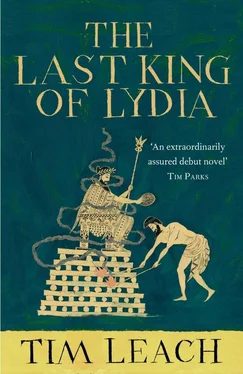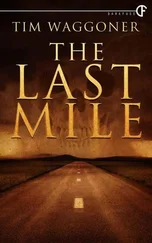Tim Leach - The Last King of Lydia
Здесь есть возможность читать онлайн «Tim Leach - The Last King of Lydia» весь текст электронной книги совершенно бесплатно (целиком полную версию без сокращений). В некоторых случаях можно слушать аудио, скачать через торрент в формате fb2 и присутствует краткое содержание. Год выпуска: 2013, ISBN: 2013, Издательство: Atlantic Books Ltd, Жанр: Исторические приключения, на английском языке. Описание произведения, (предисловие) а так же отзывы посетителей доступны на портале библиотеки ЛибКат.
- Название:The Last King of Lydia
- Автор:
- Издательство:Atlantic Books Ltd
- Жанр:
- Год:2013
- ISBN:9780857899200
- Рейтинг книги:5 / 5. Голосов: 1
-
Избранное:Добавить в избранное
- Отзывы:
-
Ваша оценка:
- 100
- 1
- 2
- 3
- 4
- 5
The Last King of Lydia: краткое содержание, описание и аннотация
Предлагаем к чтению аннотацию, описание, краткое содержание или предисловие (зависит от того, что написал сам автор книги «The Last King of Lydia»). Если вы не нашли необходимую информацию о книге — напишите в комментариях, мы постараемся отыскать её.
The Last King of Lydia — читать онлайн бесплатно полную книгу (весь текст) целиком
Ниже представлен текст книги, разбитый по страницам. Система сохранения места последней прочитанной страницы, позволяет с удобством читать онлайн бесплатно книгу «The Last King of Lydia», без необходимости каждый раз заново искать на чём Вы остановились. Поставьте закладку, и сможете в любой момент перейти на страницу, на которой закончили чтение.
Интервал:
Закладка:
Afterwards, as always, there would be stories of omens. Of horses consuming snakes in the fields, of sacrifices that went rotten in moments on the altars, and of predictions that had been made five generations before. But, in truth, there were no signs. When it came, it came as all true disasters do, with no warning at all.
A farmer beneath the walls of Sardis saw it first. He was cutting wood on the outskirts of the city, working fast to keep warm in the cold winter air, when the wind blew against his back and brought with it some strange fragment of sound. A distant voice in a foreign tongue, coupled with the sound of metal on metal.
He assumed at first that it was some trick of the wind, and continued cutting. The sound came again — stronger, more insistent, like the repeated calling of a name. He placed his axe to the ground, turned and looked to the east. It was there that he saw the unimaginable.
A numberless mass of men sprawled across the land to the east, consuming the horizon. Even then, confronted by the sight, he could not understand what he was seeing. His mind refuted it. It was not until he looked more closely, saw the horsemen whose steeds snorted frost, the spearmen with heavy sheepskins slung over their necks and rags wrapped around their hands, that he believed it.
The farmer looked on the legion who had done the unthinkable, marching for days and nights on end through a foreign land in winter, faster than any messengers who might have been sent riding ahead of them. Surely no army had ever achieved its like before. Even at this distance, he could see the alien banner under which they marched; the towering eagle that held a globe in each talon, as though even the conquest of one entire world would not be enough to satisfy the king who marched beneath that banner. It was the flag of Cyrus, and of Persia.
‘No army marches in winter,’ Sandanis said at last, to fill the terrible silence.
‘What?’ Croesus said.
‘No army marches in winter.’
‘Is that your excuse?’
‘I was-’
‘Why not? Custom again, I suppose?’
The general said nothing. Croesus looked away in disgust.
They were in the emerald throne room, its pillars studded with jade, green silks falling from the ceiling, and the king wished they had moved to some private meeting room when the news had come. It was no place for a council of war. Croesus felt like a man pretending to be a king.
He turned back to Sandanis. ‘Can we defeat them?’
Sandanis hesitated. ‘Perhaps.’
‘That is all you can say?’
‘Yes. That is all.’
Croesus looked around the room again, and the men and women of the court regarded him silently. Defeat hung heavy in the air around him.
‘Gather the army,’ he said at last.
Sandanis bowed, then looked up at the king again.
‘There is something more?’
‘You will have to come with us, sire.’
‘You think I will inspire the men?’ Croesus said bitterly.
‘Yes, my lord.’
He stared into space. ‘Isocrates?’ he said.
The slave stepped forward. ‘Yes, master?’
‘I left you behind before, and it was a mistake. You must come as well.’
For a moment, Isocrates said nothing — a half-beat of disobedience. ‘As you wish,’ he said.
The Persians waited, with a strange courtesy, for what remained of the Lydian army to take up position. In spite of their winter march, it seemed that they still had some regard for the habits of war.
Croesus watched the Lydian cavalry move to the vanguard, and despite the great numbers that stood against them, he let himself feel some small hope. He told himself that the Persians must be exhausted by their forced march across the continent. Perhaps it was here, beneath the walls of Sardis, that he could win his greatest victory.
Before he could speak and order the attack, a series of horns sounded from the Persian army. Every other man on their front line stepped to the left, exposing a series of empty columns. Through these gaps, strange figures advanced, bulky creatures that seemed to have two heads and six legs. Croesus wondered if the rumours were true, that the Persians had tamed monsters as part of their army. Then his eyes began to make sense of what he saw and recognized the figures for what they were. They were camels, being led by servants to the front line.
The men walked forward hesitantly, dressed in ragged clothes, their heads bowed. The ungainly pack animals, still heavily loaded, bleated stubbornly and spat at their handlers. They seemed to be aware that they were being taken somewhere they did not belong.
‘What are they going to do,’ Croesus said, ‘charge us with their baggage train?’
There was no response from Sandanis. He saw the general’s mouth open a bare fraction in disbelief. ‘Sandanis?’ Croesus said, suddenly afraid. He felt a wind blowing on his face from the east.
With that wind, a wave of madness passed through the front ranks of the Lydian cavalry. The horses reared and bolted, twisted and fell. He heard the animals cry out in fear and all Croesus could think, at that moment, was how human their screams sounded.
He saw riders falling from their saddles and kicked to death, saw others jumping clear and running, and soon every horse was free of its master. They broke in every direction at first, then gathered together, re-formed into a herd like wild horses in the plains. They galloped away to the north, and were lost from sight.
A thick, heavy stench came through the air, diluted by distance, but still powerful enough to make his own mount stamp and toss its head. Croesus looked up at the strange, humped animals, led by slaves and laden with supplies, that formed the unlikely vanguard of the Persian army. He closed his eyes.
‘No,’ he said.
‘Their horses must travel with the pack animals,’ the general said, his voice dull. ‘They are used to the smell.’ He shook his head. ‘Quite brilliant.’
Croesus heard the horns sound, and saw the Persian army begin its advance.
‘We have to retreat,’ the king said.
‘No, my lord.’ Sandanis’s voice was firm.
‘Without the cavalry-’
‘Yes. We will be defeated.’
‘Then-’
‘You must go back to the palace. The rest will stand here and fight. It is too late to run. If we retreat now, our army will scatter and they will take the city.’
Croesus thought of the thousands of men who were about to die for him, of how their last thoughts would be of their king and how he had betrayed them. ‘It isn’t fair,’ Croesus said, barely louder than a whisper. ‘I won’t do it.’
Sandanis leaned in towards the king, his voice close to anger. ‘It is their fate to die. It is our fate to live, and rule over them.’ He placed a hand on Croesus’s shoulder. ‘Go now. I will give the orders, and then I will follow you back to the palace.’
Croesus felt the touch of a hand on his arm. It was Isocrates. The slave said nothing, and his face gave no sense of what was in his mind, whether he wanted his king to retreat, to live, or to stay and die. But in the silence of his slave, as he had so many times before, Croesus let himself find some kind of forgiveness. Croesus bowed his head, and turned his horse back towards the city.
He heard the first screams behind him. He looked over his shoulder and saw the great Persian army spill forward like a flood. He watched the unhorsed Lydian cavalry, their lances gripped like spears, run out to meet them.
Then he turned away. He did not want to see any more.
11
Sardis waited.
On the fourteenth day of the siege, Croesus finally found the courage to go out on to the city walls and look down on what had once been his army.
Читать дальшеИнтервал:
Закладка:
Похожие книги на «The Last King of Lydia»
Представляем Вашему вниманию похожие книги на «The Last King of Lydia» списком для выбора. Мы отобрали схожую по названию и смыслу литературу в надежде предоставить читателям больше вариантов отыскать новые, интересные, ещё непрочитанные произведения.
Обсуждение, отзывы о книге «The Last King of Lydia» и просто собственные мнения читателей. Оставьте ваши комментарии, напишите, что Вы думаете о произведении, его смысле или главных героях. Укажите что конкретно понравилось, а что нет, и почему Вы так считаете.












